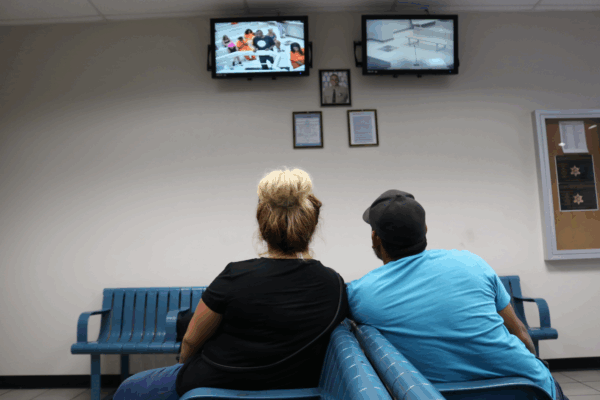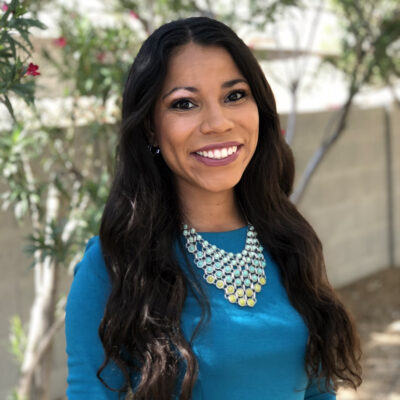In the waiting room of the Fourth Avenue Jail in Downtown Phoenix, families sit on metal benches with a shared solemnity. They watch two TV screens attentively, struggling to hear whether they will have to pay bail to get their loved one out of jail.
A husband rubs his wife’s back. Another family, including two kids, jumps up when they see their relative approach the judge’s bench. Many families speak in hushed Spanish to each other. At one point, a crying woman runs into the waiting room showing everyone a photo of what appears to be her son. “Have they called him yet?” she asks.
Any one of us could end up in this waiting room on any day.
I sat in on Phoenix Municipal Court initial appearance hearings for three days. People at these hearings are accused of misdemeanor crimes ranging from unpaid parking tickets to assault. Many people are released “O.R.”, on their own recognizance, which means the judge doesn’t set bail. But others are forced to pay their way to freedom.
Many defendants tell the judge that they are either homeless, unemployed, or living in poverty. For these people, paying a bail to get out of jail is either impossible or will require assistance from a predatory bail bonds company.
The judge ultimately decides whether someone will have to pay bail. However, the prosecutor gets a chance to recommend if the judge should set bail and for how much. The way the initial appearance hearings are set up in the City of Phoenix make it difficult, if not impossible, to hear the argument the prosecutor makes when asking for something that can change someone’s life. The hearings are broadcast on one of the small TVs in the jail waiting room. The only microphone is pointed at the judge. The prosecutor can’t even be seen on screen.
When I can hear the prosecutors, I hear them asking for bail or asking for certain release conditions, like requiring the defendant to stay away from the alleged victim. Some judges take the recommendations verbatim, while others set bail lower than the recommendation or don’t take the prosecutor’s advice at all.
On a recent morning, I watched as people received different bail amounts. On that particular day, I hear bail amounts that range from $100 to as much as $2,500. One man who is given a $200 bond asks for it to be decreased to which the judge replies, “That is a low bond.” But, according to court records, another man who was given the same bail amount on Monday, July 23, was still in jail a week later, presumably because he couldn’t pay.
Sometimes, defendants plead with the judge to be released O.R. One man, who had missed court in the past, says, “I’m asking for a chance. I promise you. I’m going to go to my court date. I’m trying to do better.” The judge listens.
With each O.R. release, the defendant is grateful. You can feel the weight that’s been lifted off their shoulders. You can hear sighs of relief in the waiting room. But the weight of having to pay a dollar amount to earn their freedom shouldn’t hang on their shoulders in the first place.
Cash bail is supposed to ensure people return to court as their case progresses. Instead, it has become a trap that unfairly keeps low-income people behind bars even while they are presumed innocent. The cash bail system disproportionately harms people of color and it makes defendants more likely to take a plea deal, even if they are not guilty, because people are desperate to get out of jail and get back to their lives.
Cities and states across the country are starting to realize the ineffectiveness of the cash bail system. In 2016, the Arizona Supreme Court’s Task Force on Fair Justice for All recommended eliminating the use of cash bond altogether because it doesn’t improve the chances that a person will return to court. It lets high-risk defendants with access to money out of jail while low-income people accused of lesser crimes are kept behind bars.
Ending the use of cash bail is possible and it’s urgent. The faces of the families at the Fourth Avenue Jail make this clear. Every Arizonan accused of a crime should have the right to continue contributing to their communities, providing for their families, and living their lives until they are granted their constitutional right to a fair trial.


